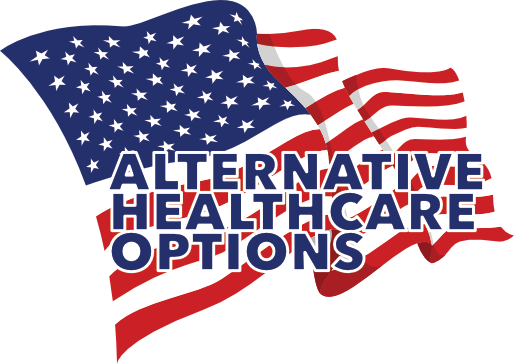At Alternative Healthcare Options, we see firsthand how quickly the health-benefits landscape is shifting. Rising premiums, complicated regulations, and an increasingly diverse workforce have made “one-size-fits-all” coverage a thing of the past. In 2025, small-business owners are embracing customized insurance plans—tailored packages that protect employees and protect the bottom line. Below, we spotlight the five solutions our advisors recommend most often, explaining why each choice can help your company stay competitive, compliant, and cost-efficient.
1. Health Savings Account (HSA) Plans
Health Savings Accounts remain the gold standard for pairing affordability with employee empowerment. When coupled with a high-deductible health plan (HDHP), an HSA lets employers and employees funnel pre-tax dollars into a personal account earmarked for qualified medical expenses.
Why HSAs resonate with small businesses
- Premium relief – HDHPs carry substantially lower premiums than traditional PPO or HMO policies.
- Triple tax advantage – Contributions reduce taxable income, grow tax-free, and can be withdrawn tax-free for eligible care.
- Consumer engagement – Because employees spend their own funds, they often make wiser, price-conscious healthcare choices.
How we help: Our team integrates HSAs into broader benefit strategies, providing both compliance support and employee education so your staff understands how to maximize every dollar.
2. Minimum Essential Coverage (MEC) Plans
MEC plans satisfy Affordable Care Act (ACA) minimum-coverage requirements at a fraction of the cost of full major-medical insurance. They focus on preventive services—annual check-ups, immunizations, screenings—helping employees stay healthy while employers stay penalty-free.
Why MEC plans make sense
- Budget-friendly premiums – Ideal for companies that need lean coverage without sacrificing essential services.
- Straightforward compliance – By meeting ACA mandates, businesses avoid costly “A” and “B” penalties.
- Preventive-care emphasis – Early detection keeps long-term claims—and absenteeism—to a minimum.
How we help: We design MEC rollouts that dovetail with existing payroll systems, ensuring seamless onboarding and accurate 1095 reporting.
3. Minimum Value Plans (MVPs)
If MEC feels too lean, an MVP offers the next tier of protection. To qualify as an MVP, a plan must cover at least 60 percent of total allowed costs—giving employees broader benefits, including inpatient and outpatient services, at a controlled price point.
Why MVPs strike the right balance
- Robust yet affordable – Greater coverage breadth than MEC, but still gentler on cash flow than traditional comprehensive packages.
- Regulatory assurance – Meets ACA minimum-value standards, shielding employers from compliance risks.
- Scalable design – Deductibles, coinsurance, and copays can be tuned to match workforce demographics and budget goals.
How we help: Alternative Healthcare Options crafts MVPs that mesh with wellness initiatives, telehealth add-ons, or gap plans, creating a layered safety net employees truly value.
4. Limited Medical Plans
Limited medical (sometimes called “indemnity”) plans target everyday healthcare needs—doctor visits, urgent-care trips, generic prescriptions—without covering catastrophic events. They’re a pragmatic option for industries with high turnover or variable-hour employees.
Why limited medical plans deliver value
- Predictable pricing – Flat-rate benefits and capped payouts keep premiums low and budgeting simple.
- Core protection – Addresses the most common health expenses that often keep employees off the job.
- Recruitment edge – Even a basic benefit beats no benefit, helping you stand out when talent is scarce.
How we help: We structure limited medical benefits to align with your attendance goals, integrating telemedicine or discount drug cards for extra appeal.
5. Bundled Ancillary Coverage Plans
Health isn’t just about doctor visits. Bundling ancillary products—dental, vision, life, accident, or critical-illness insurance—creates an attractive, all-in-one package without the headache of coordinating multiple carriers.
Why bundled ancillary plans are trending
- Whole-person care – Comprehensive benefits support physical, financial, and emotional well-being.
- Volume discounts – Combining coverages often lowers total premium spend compared with purchasing policies individually.
- Customization potential – Employers can mix and match options to suit workforce age, family status, and risk profile.
How we help: Our advisors negotiate bundle pricing and handle carrier integrations, so employees enjoy seamless enrollment while you enjoy simplified billing.
How to Select the Right Customized Plan
- Survey your team – Anonymous questionnaires reveal whether employees value lower premiums, richer benefits, or lifestyle perks such as wellness stipends.
- Audit your budget – Establish a sustainable employer contribution—then model how each plan affects long-term costs.
- Confirm compliance – Cross-check ACA, ERISA, and state mandates to avoid penalties and litigation.
- Plan for growth – Choose options that scale as headcount, locations, or industry regulations evolve.
Partner with Alternative Healthcare Options
Deciding among HSAs, MECs, MVPs, limited medical, or bundled ancillary plans can be daunting. That’s where we come in. Alternative Healthcare Options pairs deep regulatory expertise with a consultative approach, delivering benefit solutions that:
- Protect your workforce without wrecking your balance sheet
- Streamline enrollment and administration
- Strengthen your reputation as an employer of choice
Ready to raise your benefits strategy?
Contact Alternative Healthcare Options today for a personalized consultation. Together, we’ll design a customized insurance plan that keeps employees healthy, finances predictable, and compliance hassle-free—so your small business can thrive in 2025 and beyond.

